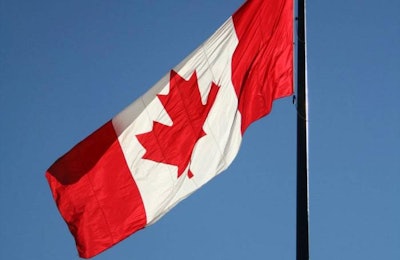
Following the confirmation of the presence of highly pathogenic avian influenza (HPAI) in Canada, poultry products from Canada are now facing multiple trade restrictions.
After HPAI was detected in a flock of commercial turkeys in Nova Scotia, the Canadian Food Inspection Agency (CFIA) notified the World Organisation for Animal Health of the situation, and as a result, Canada’s animal health status changed to reflect that the country is not free of avian influenza.
In addition to HPAI being confirmed in the commercial turkey flock, the virus has been detected at an exhibition farm and a backyard flock in Newfoundland and Labrador, as well as in wild birds in Newfoundland and Labrador, as well as in Nova Scotia.
According to the CFIA, the following countries have placed the restrictions listed below, with varying implications on products and regions:
- Taiwan – restrictions only to the province of Nova Scotia.
- Hong Kong – restrictions only to products from western Nova Scotia.
- South Africa – all heat-treated products from Canada are allowed entry into South Africa. However, only poultry products (live, hatching eggs, meat and meat products) that were packaged before Jan. 17, 2022 will be allowed entry.
- South Korea – restrictions imposed on live poultry (poultry, day olds chicks, hatching eggs, birds other than poultry including wild birds), poultry meat and edible eggs originating from Canada.
- Philippines – restrictions imposed on live poultry (poultry, day olds chicks, hatching eggs, birds other than poultry including wild birds), poultry meat and edible eggs originating from Canada.
- United States – restrictions imposed on live birds, raw pet food, and edible poultry meat and poultry products (eggs) originating from the control zone in Nova Scotia, except the products for human consumption which were cooked to reach a minimum internal temperature of 740 C (165 0 F) until further notice.
- Mexico – restrictions imposed on live poultry and poultry products from Nova Scotia.
- Russian Federation – restrictions imposed on live poultry and poultry products from Nova Scotia (and Newfoundland and Labrador).
- Japan – restrictions imposed on live poultry, hatching eggs, poultry meat and meat products originating from Nova Scotia.
- European Union – restrictions imposed on live birds, hatching eggs, animal products for pet food manufacturing, raw pet food, and edible poultry meat and poultry products including eggs and processed egg products originating from the control zone in Nova Scotia until further notice. There are no restrictions on thermally processed pet food (dry or canned) originating from the control zone in Nova Scotia.
In addition to HPAI having appeared in Canada, the virus was also confirmed in a commercial turkey flock in Indiana, in the United States. Other U.S. detections were reported in wild birds in the states of Maryland, Virginia, North Carolina, South Carolina and Florida.
View our continuing coverage of the global avian influenza situation.


















